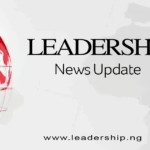The conflict in Gaza erupted following the October 7, 2023, assault on Israel by Hamas militants, which resulted in the deaths of approximately 1,200 Israelis and the capture of 251 hostages.
At the onset of this crisis, many experts viewed Israel’s response as understandable, given that the attack rekindled painful memories of the Holocaust-a tragedy that led the global Jewish community, embodied by the state of Israel, to vow: Never again.
It is crucial to recall that the Holocaust, executed by Nazi Germany under Adolf Hitler and its collaborators, led to the systematic murder of around six million Jews across Europe. This horrific chapter accelerated the establishment of Israel on May 14, 1948.
Prime Minister Benjamin Netanyahu’s steadfast commitment to resolving the Palestinian issue through military means risks producing an outcome Israel fears most-the realization of a two-state solution. Several nations, including France, Australia, and Canada, have announced plans to officially recognize the State of Palestine by September. Although the United States may use its Security Council veto to block this move, it would still represent a significant moral victory for Palestinians and groups like Hamas.
It would be shortsighted to assume Netanyahu does not foresee this possibility. Yet, his relentless pursuit to dismantle Hamas could inadvertently pave the way for it, especially considering that Hamas, much like Zionism, is fundamentally an ideological movement.
Palestinian health officials report that over 64,000 Palestinians-predominantly women and children-have lost their lives during the nearly two-year conflict in Gaza. This staggering toll has sparked reactions that may have caught Israel off guard. Compounding the situation are ongoing Israeli Defense Forces (IDF) ground operations aimed at seizing control of Gaza City. Even within the IDF, some factions question the wisdom of this campaign, while the global community largely condemns it as reckless and inhumane.
A recent United Nations Commission report accused Israeli authorities and security forces of harboring genocidal intent to partially or entirely annihilate Palestinians in Gaza.
This is not the first time Israel faces such grave allegations. In 2023, South Africa initiated proceedings at the International Court of Justice, accusing Israel of actions in Gaza tantamount to genocide-a case that remains unresolved.
Earlier this year, Amnesty International characterized Israel’s conduct in Gaza as a “live-streamed genocide,” asserting a deliberate aim to eradicate the Palestinian population.
Israel’s Ministry of Foreign Affairs dismissed these findings as fabricated, accusing the report’s authors of acting as proxies for Hamas.
Regardless of official denials, visual evidence from Gaza tells a harrowing story. Images of mass displacement, widespread destruction, and the brutal deaths of civilians-especially children-are undeniable and cannot be dismissed as propaganda.
Attention has increasingly shifted toward the United States, criticized for its apparent indifference as grave human rights violations unfold in Gaza. The perceived diplomatic and military backing from Washington has emboldened Israel to strike Qatar, a key mediator in the peace process. Since the Hamas attack on October 7, 2023, Israel has targeted six countries, including Qatar.
In response to these developments, U.S. Secretary of State Marco Rubio reaffirmed America’s unwavering support for Israel’s security, stating, “What’s happened has happened. Obviously, we were not happy about it, and the president was not happy about it. It’s not going to change the nature of our relationship with the Israelis.”
However, this stance is reshaping Israel’s alliances. Germany is reconsidering arms sales to Israel, France is spearheading efforts to recognize Palestine, and key Middle Eastern partners like Saudi Arabia and Jordan are reevaluating their ties.
This publication acknowledges Israel’s right to defend itself against the aggression experienced on October 7, 2023, and to take necessary steps to protect its sovereignty and citizens. Our concern lies in the extent of these actions. The ongoing devastation in Gaza surpasses mere national security measures and veers into disproportionate retaliation.
We are also troubled by Netanyahu and his hardline coalition’s disregard for international opinion regarding their Gaza operations.
Adding to the complexity, former U.S. President Donald Trump has proposed relocating Gaza’s two million residents to facilitate redevelopment akin to the French Riviera. This raises profound ethical questions: Is the human cost in Gaza justified? Is Netanyahu aligning with Trump’s vision?

















